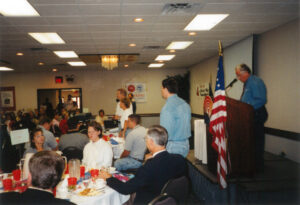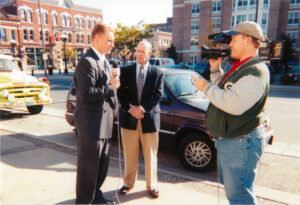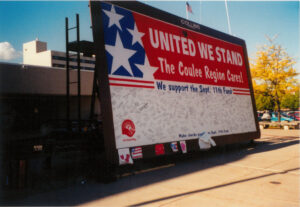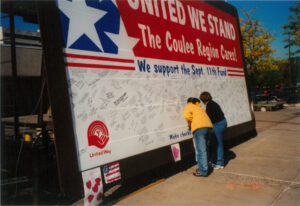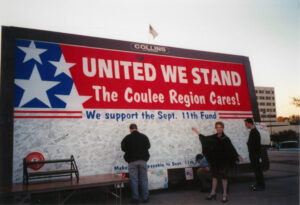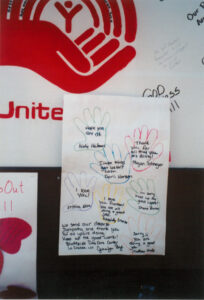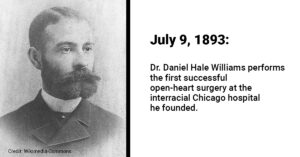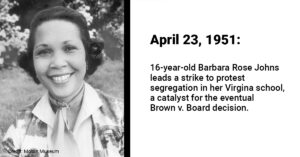Blog
Compass 2021: Taking a deeper look at Mental Health
Throughout the counties covered in the 2021 Compass Now Report (Buffalo, La Crosse, Monroe, Trempealeau, and Vernon in Wisconsin and Houston in Minnesota), mental health was voted as the #1 or #2 top need by community stakeholders. In the consideration of top needs, mental health was identified separate from substance use disorders. Though many people suffer with both, mental health is recognized as something that affects all community members.
Compass Now uses two survey methods to gather data. A survey was sent to random households throughout the region. We refer to this as the Random Household Survey (RHS) or Random Sample. The same survey was made available for any community member to respond. We refer to this as the Convenience Survey (CS) or Convenience Sample. The two sets of responses are analyzed separately due to the different collection methods.
Demographic differences exist between the Random Sample and the Convenience Sample: the Convenience Sample was younger, more female, more racially and ethnically diverse, and included more people who rent than the Random Sample.
Consistently throughout each county in the report, Random Household Survey participants rated their overall mental health as good or excellent (85-92% of respondents). However, Convenience Sample participants rated their overall mental health lower in each county, with 54-68% rating their overall mental health as good or excellent. The same pattern exists for access to mental health care and affordability of mental health care. Random Household Survey respondents rated their access and ability to pay for mental health care better. Both groups rated the ability to pay for mental health care lower than the ability to access care.
The survey also asked about the level to which respondents cared about the issues of mental health and mental health stigma. Overall, Convenience Survey respondents had a higher level of concern about the issues of mental health and mental health stigma. See Figure 1.
Secondary data trends were analyzed alongside the Compass survey results to get a better understanding of what is happening in the community. In our region, the average number of mentally unhealthy days experienced by adults has risen, as well as the percentage of adults reporting frequent mental distress. In 2018, the most recent year of data, the average number of mentally unhealthy days in the past month for adults ranged from 3.6 to 4.5. The range in 2014 was 2.8 to 3.5. Additionally, between 12% and 15% of adults in the region experienced 14 or more days of poor mental health per month in 2018. The range in 2014 was 8% to 11%.
Mental health has been identified as a top need in the region for several iterations of Compass. It has proven to be a complex problem with no easy solutions.
At Great Rivers United Way we fund programs that help support resilience and mental wellness as well as programs that help support those suffering with mental illness. Additionally, we are involved in community coalitions and efforts to raise awareness of mental health and develop solutions and strategies for the community.
What can businesses do? All people have mental health and encouraging mental wellness is one role that employers can do to help support employees. Offering an Employee Assistance Program as a benefit is one formal way to support employee mental health. Another way employers can support employees is to recognize mental health similar to physical health. Normalize using sick leave for mental health and work with employees to accommodate mental illness through flexible hours, remote work, or other solutions that will help the employee complete work.
What can you do? Normalize talking about mental health. We all have mental health and we need to eliminate any shame associated with mental illness. Learn the signs of suffering. The Campaign to Change Direction lists the signs of suffering as: personality change, agitated, withdrawn, poor self-care, and hopelessness. If you see these signs – reach out. In fact, keeping in touch with friends and family in general is something that everyone can do to support mental health and reduce isolation – for yourself and for those you care about. Everyone likes to know that someone is thinking of them and you will feel good in doing so.
Our challenge to you: give someone a call to check in. You’ll be glad you did.
Learn more about the mental health data in Compass Now at www.compassnow.org.
Meet Anne
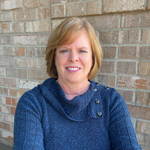 Anne Paape is new to Great Rivers United Way, but she is very familiar with the inspiring success stories of volunteers at work in our area communities. Anne was the News Director at WKBT News 8 Now for 30 years, in addition to anchoring newscasts and reporting earlier in her career at both WKBT and WXOW. She’s planned local news coverage for everything from Presidential visits to flooding clean-up efforts and school fundraisers. For some, she’s simply known as the “Pet of the Week lady” because of the hundreds of feature stories she’s done on animals at the Coulee Region Humane Society in need of a new home.
Anne Paape is new to Great Rivers United Way, but she is very familiar with the inspiring success stories of volunteers at work in our area communities. Anne was the News Director at WKBT News 8 Now for 30 years, in addition to anchoring newscasts and reporting earlier in her career at both WKBT and WXOW. She’s planned local news coverage for everything from Presidential visits to flooding clean-up efforts and school fundraisers. For some, she’s simply known as the “Pet of the Week lady” because of the hundreds of feature stories she’s done on animals at the Coulee Region Humane Society in need of a new home.
As the Community Engagement Coordinator here at Great Rivers United Way, she’s excited about the opportunity to help support community programs that help make this area a great place to live, work, and call home.
15 Questions for Anne
- What are you most excited about in your new position? I’m really excited to grow the Read to Success program so we can recruit more volunteers to work with more third grade readers in area schools. It’s a tremendous program!
- Favorite color? Blue.
- Number of children? One son, Josh. He’s getting married in August and we’re thrilled to add fiancé Erin to our family.
- Least favorite household chore? Vacuuming the dog hair off the stairs. Ugh.
- Latest tidbit you’ve learned about United Way? We get to share our office building with an adorable sheepadoodle puppy who loves visitors. I’m a regular!
- Favorite recreational activity? I love to garden and grow both vegetables and flowers.
- Genre of music? Not really a genre, but I’m a big U2 fan and really miss Tom Petty.
- Most likely to order on a menu? Anything with blue cheese.
- Favorite movie? The African Queen. Katharine Hepburn was fierce.
- Most looking forward to in the first United Way campaign? Being part of a team focused on problem solving.
- Role model? My grandmother. She was the most accepting and kindest person I’ve ever known.
- Favorite place to visit? Italy. I’ve been lucky enough to visit there twice and look forward to a return trip at some point.
- Guilty pleasure? Going back to sleep on weekends after getting up to feed the dogs. For the record it’s a rare guilty pleasure.
- Memorable moment in the new job thus far? I got to sit in on a Read to Success tutoring session and experience the strong connection between one of our tutoring volunteers and a third grade reader. It made my heart happy.
- Favorite thing about our community? I’m continually amazed by how willing people are to help when they know there’s a need. It’s something very special about this area.
United We Stand, 20 years later
On the morning of September 11, 2001, a dozen or so volunteers gathered in our basement. They were at our office in Onalaska learning the ins and outs of Great Rivers United Way – knowledge they would share while making campaign presentations on our behalf.
Upstairs, the radio was on. Music and the morning news were playing in the background when suddenly, regularly scheduled programming was interrupted by a DJ saying that something had happened in New York City. Staff turned on an office TV just as the second plane hit.
Our annual Campaign Kick-Off Breakfast was set to take place on September 12. We considered cancelling, but ultimately decided that this event was a much-needed opportunity for our community to come together during this difficult time. What is typically a celebratory event was transformed into a much more somber affair, complete with red, white, and blue table cloths and napkins.
We began with a moment of silence. Then, a heartfelt invocation honored those who had lost their lives. In an unplanned act of patriotism, 2001-02 Campaign Chair Dave Trapp stood up and led the whole room in the singing of “God Bless America,” a spontaneous moment that remains etched in the hearts of the staff who were there.
Like others in our community, our country, and across the world, Great Rivers United Way staff felt a mix of emotions, including anger and fear. We questioned why this had happened, and from 1,071 miles away, we wondered what we could do to help while simultaneously feeling very helpless.
Our office started receiving phone calls right away. People wanted to help, and they saw us a resource for doing so. We knew, at a minimum, that our United Way had the capacity to serve as a clearing house for donations, just as we have more recently for flood and COVID-19 relief. The local media knew this, too, and they reached out to partner with us.
“United We Stand,” a September 11 Fund donation drive, took place on October 11, 2001. For 13 hours on a warm and sunny fall day, WKBT-TV, WXOW-TV, WLAX-TV, KQEG-TV, La Crosse Radio Group, Family Radio Group, the La Crosse Tribune, and Charter Communications – with help from Community Credit Union, Collins Sign Company, and CenturyTel – pooled their collective power with a unified message.
With collection sites at the La Crosse Center and the Onalaska Omni Center, the public came out all day long to participate in the event. Both radio groups had live remotes from the sites all day, and the television stations conducted interviews for their newscasts. The Tribune promoted and covered the event.
Local response to help those in need was overwhelming. Children who had been saving for a special purchase brought coins in baggies. The student senate at one of our middle schools donated $500 from its school enhancement fund. An area bank pledged $1 for every guestbook signature they received, and $5,000 was raised.
Nearly $33,000 was raised during the one-day event. In total, Coulee Region residents donated $44,478.39 to the Fund. In addition, hundreds of messages of encouragement, sympathy, and patriotism were sent from the Coulee Region out East.
To say that a lot has changed in 20 years is an understatement. We will never forget September 11, 2001. We will never forget how our community came together following that tragedy – and others since it – and we are thankful that Great Rivers United Way continues to be looked at as a source of hope and help.
Stabilizing household economic situations
June 2021
In 2018 when the last ALICE study was completed, it found that one out of every three households in our region struggles to make ends meet. ALICE stands for Asset Limited, Income Constrained, Employed. This was pre-pandemic. When the pandemic hit and schools and businesses had to shut down, these households were disproportionately impacted due to losing childcare, having to home school, the lack of savings, and either losing wages from job loss or being at increased risk of infection from being an essential worker.
At Great Rivers United Way, we have long been involved in working for financial stability in the communities we serve. One of our three strategic objectives is to stabilize household economic situations so people experience thriving lives.
To help accomplish this objective, we provide Community Investment Grant funding to programs that help people get back on their feet after an economic crisis; learn about their finances; improve their financial position; and gain education, skills, and tools for increasing income.
Homelessness is a devastating experience for individuals and families. Last month we talked about supporting emergency shelter programs for people experiencing homelessness. In addition to emergency shelter we also support a broad spectrum of programming from preventing homelessness to providing case management and support once housed.
Housing programs through Independent Living Resources, Couleecap, Families First of Monroe County, Bluff Country Family Resources, and YWCA La Crosse work with people where they are at to develop goals and connect to community resources to help households gain stability and self-sufficiency. Through a mixture of interventions like rental assistance, rent subsidies, budget counseling, and case management, households are able to work on plans that they direct and develop.
One unique approach helping people who are homeless and have a disabling condition is Couleecap’s Social Security Outreach, Access, and Recovery (SOAR) program. SOAR uses a proven model that increases the initial approval of Social Security and Disability applications, helping individuals gain access to financial and health benefits quicker than if they did not have assistance. The program also connects people with primary healthcare, treatment, job training, and housing. It is a life-changing program for households in severe need.
Great Rivers United Way also supports Consumer Credit Counseling Service of La Crosse in their work to improve financial stability of individuals and families. With grant funding, Consumer Credit Counseling Service provides one-on-one credit counseling, budget counseling, and credit repair services to help folks in the area increase their savings and reduce debt.
Access to decent-paying jobs is another focus within our strategic objective to stabilize household economic situations so people experience thriving lives. GRUW provides Community Investment funds to the Supported Employment Program at Family & Children’s Center to help people struggling with mental health issues gain competitive employment. Program staff support folks in finding and maintaining jobs that are fulfilling and competitive, counsel on how a job may impact Social Security benefits, provide support in maintaining mental health treatment, and connect to other community resources. Program staff also build relationships with employers in order to build a community of employers supportive of hiring folks in the program.
Another way that GRUW is increasing financial stability is by supporting programs that help people gain education, skills, and tools that lead to obtaining and keeping good-paying jobs or opening a small business. Western Dairyland Economic Opportunity Council provides Skills Enhancement, Work-n-Wheels, and Jobs and Business Development programs in Buffalo and Trempealeau counties with help from Community Investment funds. These programs help people obtain skills needed for high-demand jobs; open or expand small businesses providing not only individual income, but also new jobs in the community; and have reliable transportation to be able to get to work.
Beyond grant funds, GRUW supports other efforts to increase financial stability through advocacy and collaborations. One important collaboration is the Coulee Region Tax Assistance project that helps low-income folks access free tax submission so they can maximize their tax returns. This project has put hundreds of thousands of dollars back into the pockets of our community members.
When a problem is as complex as poverty, the best solution is a multifaceted approach that addresses individual needs. GRUW’s funding, advocacy, and collaborations put financial stability within reach for local people experiencing financial hardship. Our work (and your support of it) moves all households toward a more equitable economy, and ensure that no one is left behind during difficult times.
To learn more about the United Way-funded programs that stabilize household economic situations so people experience thriving lives, visit www.gruw.org/june. Learn more about the ALICE Report at: www.unitedforalice.org/wisconsin.
Supporting a healthy and socially-connected community
May 2021
May is Mental Health Awareness Month. We thought the timing was right to talk about the community programs we invest in under one of our strategic objectives: support a healthy, socially-connected community. As you will learn, supporting mental health and wellness is a large part of this work.
At Great Rivers United Way (GRUW), we think about health holistically. Everyone needs their basic needs for food, shelter, and safety met to be healthy.
That is why we support programs like emergency shelter at The Salvation Army, New Horizons, Western Dairyland, and Ruth House at YWCA; food programs like the WAFER food pantry in La Crosse, Couleecap’s food pantry in Monroe County, Mobile Meals in La Crosse, and the Hunger Task Force’s food bank and Kane Street Community Garden programs; and domestic violence programs like those at Bluff Country Family Resources, New Horizons, and Family and Children’s Center.
We support people staying safe at home and recovering from disaster by supporting the American Red Cross in their efforts to help families recover after disaster and help families be prepared in case of fire; Couleecap’s Healthy Homes program that helps low-income families have safe drinking water and lead-free homes; and Neighbors in Action that helps seniors in La Crescent and Caledonia to safely age in place.
Physical health is also an important aspect of our strategic objective. Our Great Rivers HUB is helping people manage heart disease and diabetes as well as helping women give birth to healthy babies.
We support youth fitness through the Boys and Girls Clubs of West Central Wisconsin’s Healthy Lifestyle program which encourages kids to stay active and eat healthy. We also support education on healthy meals through WAFER’s Nutrition Education and tools program. Finally, we help increase access to physical health services by investing in the Help Program at Scenic Bluffs which helps people enroll in health insurance plans and connect to other resources to get and stay healthy.
GRUW supports Mental Health and mental wellness through both formal and informal supports, as well as through opportunities for social connection. We invest in direct supports by funding Outpatient Counseling at Family and Children’s Center that helps people work through emotional, behavioral, and mental health problems and Helping Youth Who Need Us Most at Boys and Girls Clubs of Greater La Crosse providing mental and behavioral supports for youth in need.
For folks struggling with addiction, we support Coulee Recovery Center’s substance-free space to gather and find community with peers who have been down the same path. Independent Living Resources RAVE* Recovery Avenue and Family and Children’s Center’s The Other Door programs provide drop-in space and peer support for mental health.
An important aspect of mental wellness is doing enjoyable activities. We’re investing in Western Dairyland’s Retired Senior Volunteer Program and the Kane Street Community Garden where folks have opportunities to volunteer to enjoy activities and connect with others.
Finally, to pull all of this work together, Great Rivers United Way invests in Great Rivers 211. 211 provides information and referral to community resources and is an addiction crisis resource. There is always someone available to help 24/7.
Mental health is how we think, feel, and act. Recently, in partnership with the Better Together project, GRUW designed and distributed door hangers that gave tips on how to stay mentally healthy:
- Connect with others
- Be aware of how you feel
- Take care of your body with movement, fuel, and rest
- Do something you enjoy
- Set healthy boundaries
- Ask for help when you need it
As you can see, Great Rivers United Way invests in programs that help people throughout our region with resources to be healthy and socially connected. Everyone has mental health, and we strive to help all community members be the healthiest we can be.
To learn more about the programs that support a health and socially-connected community, visit www.gruw.org/may. Next month, we’ll cover the partners who are meeting our last, and equally important, strategic objective.
Positively impacting our youngest community members
April 2021
Great Rivers United Way (GRUW) currently funds 52 programs offered at 26 partner agencies located throughout our seven-county service region. You may have heard that we recently wrapped up our 2021 fundraising campaign. What you might not know is that we began using that money this month!
To be eligible to receive funding, agencies must first apply for certification. Following that, any certified agency program that is working toward one or more of the three objectives in GRUW’s strategic plan may apply for a grant.
One of those objectives is positively impact our youngest community members. GRUW funds a spectrum of services that help area children grow up resilient and successful.
Starting early on in a child’s life – even before birth – GRUW funding helps families. Our Great Rivers HUB initiative works to bring healthy babies into the world by providing support and services to pregnant women considered high risk for poor health outcomes.
The Healthy Families Program at Family and Children’s Center is a home visiting program offered to parents-to-be and parents of infants to help provide parenting support that is proven to reduce child abuse. At The Parenting Place, GRUW funds provide parents one-on-one and group support to help build protective factors that lead to positive youth outcomes.
As children get older, they have opportunities to participate in some well-known programming funded by GRUW. Boys & Girls Clubs, Girl Scouts, Boy Scouts, and Big Brothers Big Sisters offer out-of-school opportunities and activities that build skills and meaningful relationships.
We also fund lesser-known programs. The Restorative Justice program at the YWCA helps middle-school youth resolve conflicts and promotes social-emotional growth by teaching students how to lead peers in Justice Circles. Justice Circles are formed with students and staff when conflicts arise. A student Circle Keeper facilitates the group, and ensures everyone involved has a voice and is heard.
Boosting reading skills is important. Funds raised also support GRUW’s own Read to Success program. Read to Success pairs volunteers with third graders who need extra help. Focus is on third grade because that is the point where students transition from learning to read to reading to learn.
Other school-aged programming funded by GRUW is geared toward safety and prevention. The Pillowcase Project through the American Red Cross help children learn about fire safety. Coulee Council on Addictions offers programs that help prevent kids from using drugs and alcohol. She Hlub, a program at Cia Siab, Inc., helps Hmoob youth create healthy relationships with elders, heal from trauma, and celebrate Hmoob culture.
Some programs that GRUW funds tackle tough problems that we hope no child ever encounters, like child abuse, healing from abuse, providing testimony of abuse, and witnessing domestic violence. Programs like Court Appointed Special Advocates (CASA) for Kids at the YWCA and Stepping Stones at Family and Children’s Center provide advocacy and support to children when courts are involved.
Programs through New Horizons and Bluff Country Family Resources help those who have experienced domestic violence to heal and find resources to help live safer lives. These include working with children exposed to violence.
As we near the end of April, Child Abuse Prevention Month, we want to thank all our partners for the work they are doing to prevent abuse and help children and youth heal. We’re also thankful for the community support that helps fund this important work.
To learn more about the programs helping impact the youngest community members, visit www.gruw.org/april. In the coming months, we’ll introduce you to additional partners who are meeting equally important needs.
Compass Report sets direction for community investment
March 2021
In order to find solutions, one must first understand problems. At Great Rivers United Way, we have a process for understanding problems that allows us to fund solutions. It’s called the Compass Now Report.
The Compass Now Report is a joint effort of Great Rivers United Way, area healthcare organizations, and county health departments. The report is meant to provide an updated assessment of community needs that can be used to inform community action strategies by stakeholders across the region. It focuses on six counties within Great Rivers United Way’s service region: Buffalo, La Crosse, Monroe, Trempealeau, and Vernon counties in Wisconsin, and Houston County in Minnesota.
The soon-to-be-released Compass Now 2021 Report is the latest in a series of needs assessments published since 1995. Great Rivers United Way has focused its funding system to more closely reflect identified community needs in response to these reports. In addition, a wide array of community organizations have used Compass findings to shape their own priorities and support grant requests.
A large component of assessing the needs of the community is asking the folks who live and work here about their perception of various aspects of life in the region. Compass gathers community insight through surveying community members on topics like education, childcare, transportation, jobs, basic needs, recreation, environment, and societal problems. Over the summer and fall of 2020, Compass sent surveys to 6,000 random households in the region. Then the survey was distributed through local nonprofit and business partners to anyone in the community willing to respond concentrating on populations that were under-represented in the random household results.
Besides the survey, Compass also collects secondary data to help round out the view of community health and wellness. These data cover topics of length and quality of life; health behaviors; health care; social and economic factors; and environment and safety factors. The secondary data and the community insight together provide a broad overview of life in the region – what is going well and what needs improvement.
The next step of Compass was to discuss the community insights and secondary data with community stakeholders. Stakeholder meetings were held in each county to talk over the data collected, and identify and prioritize the most pressing needs of the county. Folks attending the meetings represented a wide range of sectors in the community: business, education, faith, healthcare, government, law enforcement, nonprofit, and social services.
Across the region, some preliminary issues rose to the top. They are big, persistent problems that have no easy solutions: mental health needs, alcohol and substance abuse, safe and affordable housing, poverty and livable wage jobs. At Great Rivers United Way, we know that big problems call for multi-faceted solutions – helping folks now and preventing problems in the future. The Compass Now results will help inform our Board of Directors and staff as we strategize and make funding decisions.
Acknowledging problems makes it easier to see our region’s strengths. We know from the survey data that community members feel positively about their community as a place to live and feel that community safety is good.
The final Compass Now 2021 Report will be available later this spring. We plan to address some of the top issues in a more in-depth way in future articles. Stay tuned.
Black History & Black Futures
While celebrating Black history, we also work to create a more equitable future.
Black History Month is a time to celebrate influential leaders and impactful moments of the past. But celebrating Black history is not enough.
United Way continues to work toward a future where Black Americans have the same access to employment, education, health care and housing as their white neighbors.
As part of that work, below we highlight an important moment from Black history that aligns with our focus areas of health, education, and financial stability, outline a few current challenges faced by Black Americans, and explain what United Way is doing to help solve these problems.
Health
Moment in History July 9, 1893: Dr. Daniel Hale Williams performs the first successful open-heart surgery at the black-owned, interracial hospital he founded in Chicago. Both Dr. Williams and his patient were Black.
Current Challenges
But since Dr. Williams’ groundbreaking work, health outcomes for the Black population are still significantly worse than for whites.
- Nearly 100,000 fewer Black Americans would die each year, if the Black mortality rate was the same as it is for whites.
- A Black individual will live three fewer years on average than a white person with the same income.
- Black Americans are nearly 4 times more likely to be hospitalized and 3 times more likely to die from COVID-19 than whites.
United Way’s Work
United Way believes that an individual’s race, ZIP code, or income should never be a barrier to quality health. We work to address health inequity by:
- Fighting for improved access to health care coverage
- Creating exercise and recreation opportunities in low-income and segregated neighborhoods
- Making it easier for people to access substance abuse programs
- Setting up mobile food pantries
- Supporting the mental health needs of veterans
Education
Moment in History April 23, 1951: 16-year-old Barbara Rose Johns leads a strike to protest segregation and poor conditions at her Virginia high school. Her leadership inspires local lawyers to sue the federal government, a case that eventually becomes part of the landmark Brown v. Board decision.
Current Challenges
The Supreme Court ruled school segregation was unconstitutional in Brown v. Board of Education. But segregation in public schools has only risen since 1996. This kind of structural racism along with institutional racism has hurt the educational outcomes of Blacks students.
- The graduation rate for Black students (79%) is lower than the national average.
- Schools with 90% or more students of color receive $733 less per student.
- Only 57% of Black students have access to the full range of math and science courses needed for college-readiness.
- More than 70% of Black students were learning remotely in fall 2020, compared to 40% of white students.
United Way’s Work
United Way fights to shift the odds for students of color and those in low-income areas. Our work includes:
- Recruiting volunteers to read with preschool and elementary students
- Providing after-school programs and extracurricular activities and clubs
- Supporting middle and high school students through graduation
- Connecting students with volunteer mentors and tutors
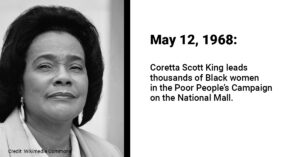 Financial Stability
Financial Stability
Moment in History May 12, 1968: Thousands of Black women, led by Coretta Scott King, begin the first demonstrations in the Poor People’s Campaign. After building Resurrection City on the National Mall, they stayed in temporary shacks for over a month in a fight for jobs, unemployment insurance and a higher minimum wage.
Current Challenges
Decades of segregation, discrimination and low wages have impacted the financial stability of Black families in the U.S. Since 1992, the racial wealth gap has grown.
- The net worth of a typical Black family is $17,150, compared to $171,000 for white families.
- Only 44% of Black families own a home, compared to 72% of white families.
United Way’s Work
United Way battles chronic unemployment, homelessness and financial illiteracy; issues which disproportionately affect Black Americans. In April, United Way Worldwide created a relief fund for Black Americans harmed by the financial devastation of the pandemic. Our ongoing work includes:
- Providing free tax preparation services for middle- and low-income families
- Offering financial education and coaching, especially to unbanked individuals
- Training adults for careers in thriving industries, like health care
- Providing job counseling and application assistance to the unemployed
It’s tax time!
February 2021
In 1716, playwright Christopher Bullock, in a quote later made famous by Benjamin Franklin, said, “’Tis impossible to be sure of any thing but Death and Taxes.” Roughly 300 years later, this sentiment is as accurate as ever.
Despite the uncertain times we live in, some things never change, and one of them is taxes. The world looked a lot different one year ago today. Could our time-honored tradition of filing taxes be a source of normalcy and almost seem… fun? While I wouldn’t go quite that far, please allow me to tell you about a United Way partnership that can make filing your taxes free and easy.
Great Rivers United Way is excited to once again promote MyFreeTaxes.com. MyFreeTaxes allows taxpayers to easily and accurately file their taxes from their computer or smartphone. MyFreeTaxes is a free and easy way to file simple federal and state tax returns for free.
Taxes can be a source of confusion and stress for Americans. Many of us are intimidated by the complexities of taxes and afraid to make a mistake that will cost money. With MyFreeTaxes, you can take advantage of all the tax credits and deductions you qualify for. That’s especially important now, as so many are struggling in the wake of the pandemic.
MyFreeTaxes’ secure software walks you through the filing process and screens for common tax deductions and credits you may be eligible for, like the Earned Income Tax Credit (EITC) or the Child Tax Credit. You can also use MyFreeTaxes to claim missed stimulus payments. That’s part of United Way’s effort to make sure taxpayers get back every penny possible.
At Great Rivers United Way, we recognize the importance of understanding your taxes and the deductions available to you, as well as the role tax returns play in the financial situations of our community’s most at-risk populations. Not only do we fund programs that stabilize household economic situations so people experience thriving lives, we promote resources like MyFreeTaxes that have a real and meaningful impact on local people’s financial stability.
EITC is a benefit for working people with low to moderate income. To qualify, you must meet the eligibility requirements and file a tax return, even if you do not owe any taxes or are not required to file. EITC not only reduces the amount of tax you owe; it may give you a refund. In 2019, the average EITC received per tax filer was $2,476.
For the last five years, Great Rivers United Way has participated in a local partnership called Coulee Region Tax Assistance (CRTA). CRTA is an IRS-certified Volunteer Income Tax Assistance (VITA) site where volunteers help lower-income taxpayers accurately prepare their taxes with ease and at zero cost. Since 2017, this partnership has helped 227 returns claim the EITC, which often goes unclaimed despite being much-needed free money that lower-income households could use to thrive.
Due to COVID-19 health and safety concerns, CRTA will not be in operation this year. The partnership is instead encouraging people to self-prepare with MyFreeTaxes.
To get started, visit MyFreeTaxes.com. To learn more about the EITC, whether you qualify, and why this deduction is so important, check out IRS resources at www.bit.ly/2Z8hpf0. To join Great Rivers United Way in advocating for the EITC, visit www.untdwy.org/3tNDgqh.
Start with Great Rivers United Way
January 2021
Just the other day, we received a question from a community member: “Where should I start?” Such questions are a common occurrence at Great Rivers United Way, but more often than not, the phone calls and emails we get are from people seeking services. This time, the question was about how and where to make a gift in support of a specific cause.
Well, potential donor, you came to the right place! We’re well suited to answer this question. Between frequent communication with our agency partners, our thorough funding process, and our community needs assessment, the Compass Report, Great Rivers United Way has its finger on the pulse of the communities we serve. A staff member was quick to assist, and the conversation went back in forth over the course of several emails.
If there’s a health and human services cause you’re passionate about, we can point you to a handful of local agencies that are making a difference in that one area. We’re happy to provide this service, but we also want to make sure that potential donors understand United Way’s role.
People don’t face issues in isolation. If there’s not already two or more challenges at play – for example, mental health and substance use disorders can both contribute to homelessness – then at the very least, a person is likely facing a domino effect of problems, in which it is increasingly difficult to get ahead.
Compared to others of its size, the La Crosse area has a huge number of nonprofit organizations doing great work. One of the reasons we succeed as a nonprofit community is that we all play a role, and we do it together. Creating and working on collaborations is a large part of Great Rives United Way’s role.
Revisiting the example from above, La Crosse is home to organizations that focus on homelessness, organizations that focus on mental health, and organizations that focus on substance use. A gift to just one works in isolation to address an important need, but a gift to Great Rivers United Way helps them all. That’s why when you ask “Where should I start?” we say “With us!”
If someone is hesitant, the most common reason why is overhead. Every organization has overhead. We simply can’t function without lights, heat, facilities (no matter the size), office supplies, and – most importantly – staff, who play a key role in an organization’s successful infrastructure. Most nonprofits take out overhead from a donation. If the impact is there, the amount of overhead should be a non-issue. Don’t let overhead percentage for United Way or any nonprofit agency be what stops you from giving to help others in your community.
You can give directly to one nonprofit’s mission, and yes, with most nonprofits you will lose varying percentages of that donation for overhead. You can give to fight many community challenges with a gift to Great Rivers United Way. Our overhead is 14%, which is quite small by industry standards, and means $0.86 of every dollar you give goes to help people. That’s a bargain for the work we do in the seven counties we serve, including the ability to contact us, ask questions, and get answers, whether they be about giving help or receiving it.


